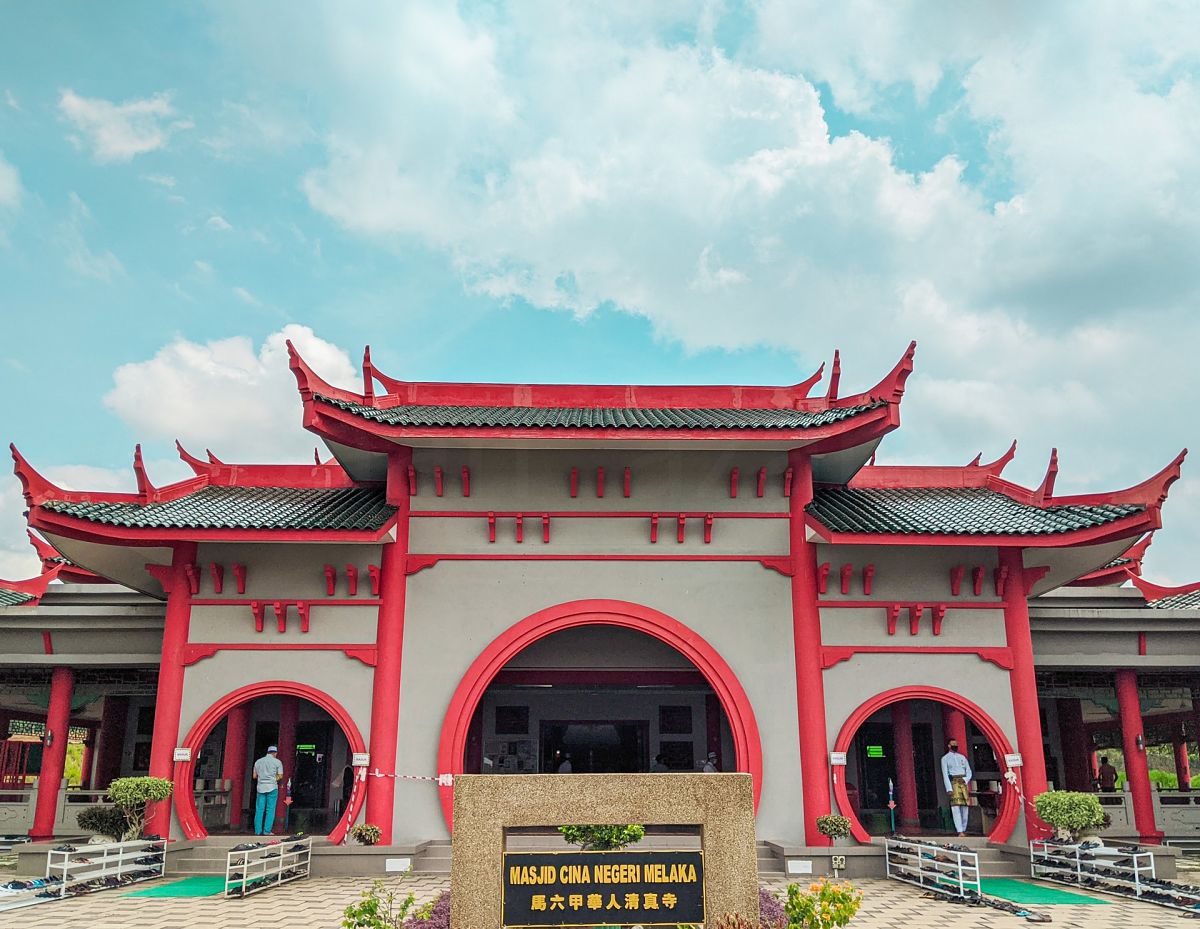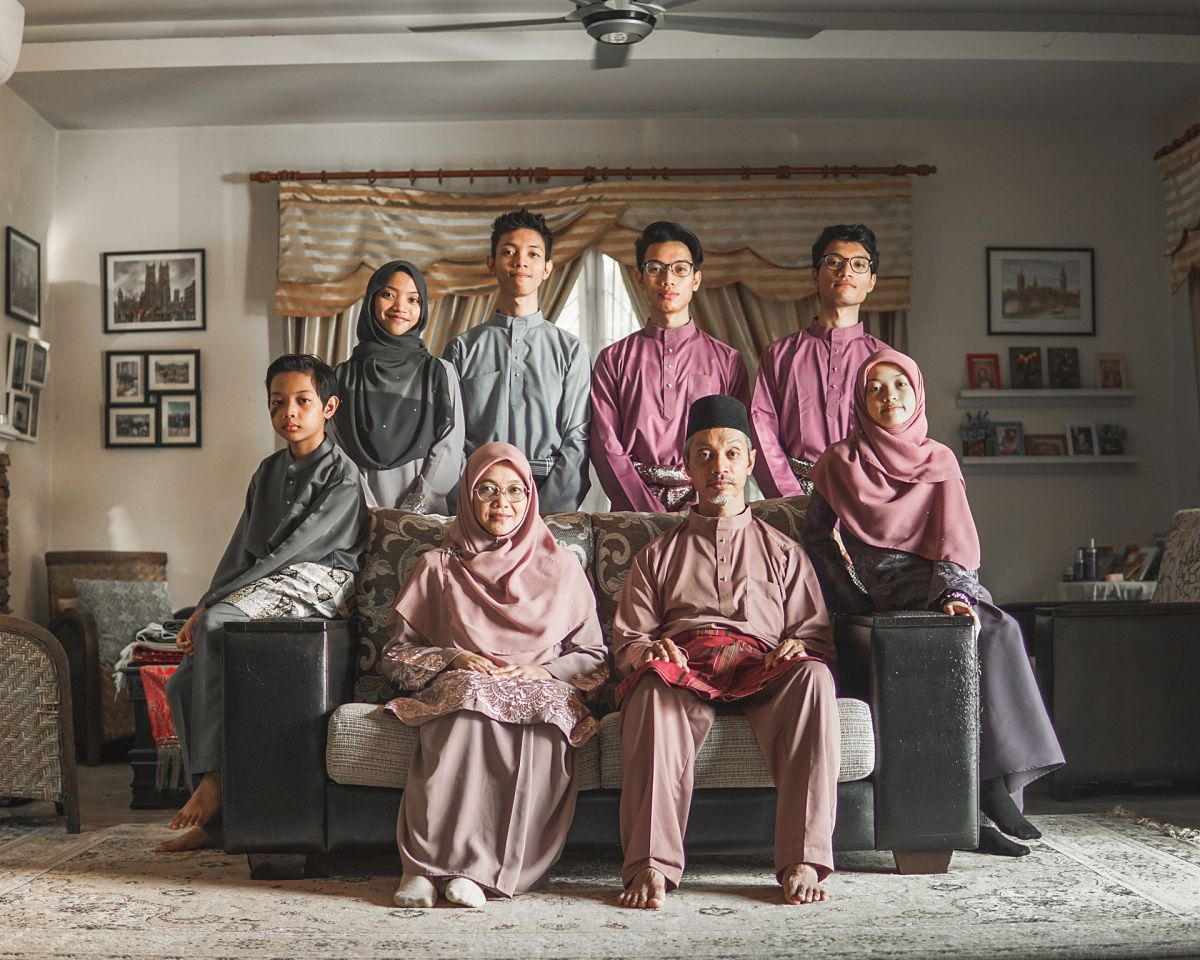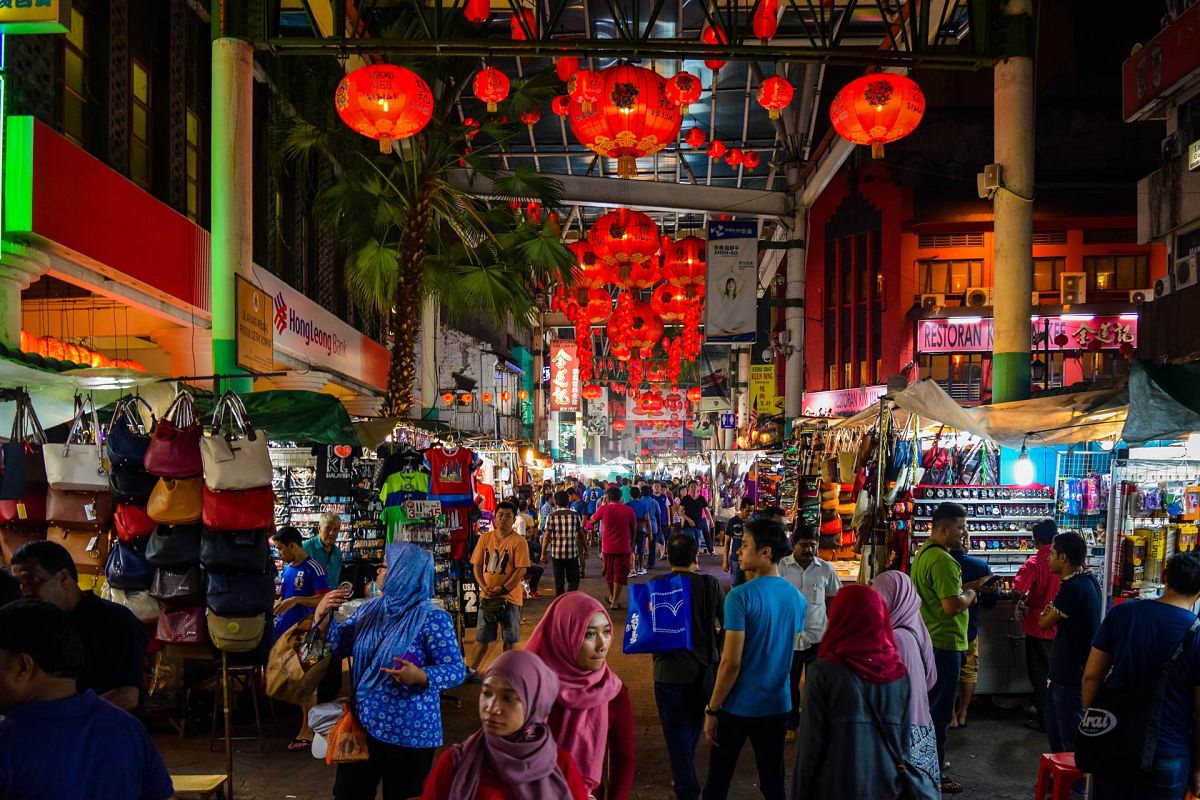Malaysia - Culture, Etiquette and Business Practices
 Salamat Datang!
Salamat Datang!
Welcome to this guide to Malaysian culture.
Perfect for anyone interested in Malaysian society, etiquette, manners and business culture!
What will you Learn About Malaysia?
You will gain an understanding of a number of key areas about the country including:
- Language
- Religion and beliefs
- Culture and society
- Social etiquette and customs
- Business culture and etiquette
Facts and Statistics
Location: Southeastern Asia. Shares borders with Thailand, Indonesia, Singapore and Brunei.
Capital: Kuala Lumpur
Climate: tropical; annual southwest (April to October) and northeast (October to February) monsoons
Population: 32+ million (2019 est.)
Ethnic Make-up: Malay 50.4%, Chinese 23.7%, indigenous 11%, Indian 7.1%, others 7.8%
Religions: Muslim 60.4%, Buddhist 19.2%, Christian 9.1%, Hindu 6.3%, Confucianism, Taoism, other traditional Chinese religions 2.6%, other or unknown 1.5%, none 0.8%
Government: constitutional monarchy
Business Culture: Ranked 43rd in the Business Culture Complexity Index™
Language in Malaysia
The Malay language is an Austronesian language spoken not only by Malaysians but all Malay people who reside in the Malay Peninsula, southern Thailand, the Philippines, Singapore, central eastern Sumatra, the Riau islands, parts of the coast of Borneo, Cocos and Christmas Islands in Australia.
It is also very similar to Indonesian, known locally as Bahasa Indonesia.In Malaysia, the language is officially known as Bahasa Malaysia, which translates as the "Malaysian language". The term, which was introduced by the National Language Act 1967, was predominant until the 1990s, when most academics and government officials reverted to "Bahasa Melayu," which is used in the Malay version of the Federal Constitution.

A mosque in Malacca influenced by Chinese architecture. A perfect insight into the history of Malaysia and its cultural influences. Photo by Farhan Azam on Unsplash
Malaysian Culture and Society
A Multi-Cultural Society
Malaysia is a multi-cultural society. The main ethnic groups are the native Malays as well as large populations of Chinese, and Indians. When visiting the country it is clear that the ethnicities retain their religions, customs and way of life. The most important festivals of each group are public holidays.
Although growing up, children are educated in the same schools and will eventually work in the same offices, few marry outside their own ethnicity. Families tend to socialise within their own ethnic group – all part of retaining their individual traditions and lifestyles.
Despite the ethnic differences there are commonalities culturally speaking.
Group Orientation
The family is considered the centre of the social structure. As a result there is a great emphasis on unity, loyalty and respect for the elderly. The family is the place where the individual can be guaranteed both emotional and financial support.
When one member of the family suffers a financial setback, the rest of the family will contribute what they can to help out. Families tend to be extended, although in the larger cities this will naturally differ.
The Concept of Face
Malays, Chinese and Indians all strive to maintain face and avoid shame both in public and private. Face is a personal concept that embraces qualities such as a good name, good character, and being held in esteem by one's peers. Face is considered a commodity that can be given, lost, taken away, or earned. On top of this face also extends to the family, school, company, and even the nation itself.
The desire to maintain face makes Malaysians strive for harmonious relationships.
Face can be lost by openly criticizing, insulting, or putting someone on the spot; doing something that brings shame to the group; challenging someone in authority, especially if this is done in public; showing anger at another person; refusing a request; not keeping a promise; or disagreeing with someone publicly. Conversely, face can be saved by remaining calm and courteous; discussing errors or transgressions in private; speaking about problems without blaming anyone; using non-verbal communication to say "no"; and allowing the other person to get out of the situation with their pride intact.

A beautiful Malay family. Family means everything in Malay culture. Photo by Muktasim Azlan on Unsplash
Etiquette and Customs in Malaysia
Meeting and Greeting
Greetings in a social context will depend upon the ethnicity of the person you are meeting. In general, most Malays are aware of Western ways so the handshake is normal. There may be slight differences though and a few things to bear in mind include:
Malay women may not shake hands with men. Women can of course shake hands with women. Men may also not shake hands with women and may bow instead while placing their hand on their heart.
The Chinese handshake is light and may be rather prolonged. Men and women may shake hands, although the woman must extend her hand first. Many older Chinese lower their eyes during the greeting as a sign of respect.
Indians shake hands with members of the same sex. When being introduced to someone of the opposite sex, nodding the head and smiling is usually sufficient.
Among all cultures, there is a general tendency to introduce:
- the most important person to the lower ranking person.
- the older person to the younger person.
- women to men.
Names in Malaysia
The way names are used also varies between ethnicities:
Chinese
The Chinese traditionally have 3 names. The surname (family name) is first and is followed by two personal names.• Many Chinese adopt more Western names and may ask you to use that instead.
Malays
Many Malays do not have surnames. Instead, men add their father's name to their own name with the term "bin" (meaning ‘son of’). So Rosli bin Suleiman, would be Rosli the son of Suleiman.
Women use the term "binti", so Aysha bint Suleiman is Aysha the daughter of Suleiman.
Indian
Many Indians do not use surnames. Instead, they place the initial of their father's name in front of their own name. The man's formal name is their name "s/o" (son of) and the father's name.
Women use "d/o" to refer to themselves as the daughter of their father.
Petaling Street Market, Jalan Petaling. Photo by Ravin Rau on Unsplash
Gift Giving Etiquette
Here are some general gift giving etiquette guidelines:
Gift giving to Malays:
If invited to someone's home for dinner, bring the hostess pastries or good quality chocolates.
- Never give alcohol.
- Do not give toy dogs or pigs to children.
- Do not give anything made of pigskin.
- Avoid white wrapping paper as it symbolizes death and mourning.
- Avoid yellow wrapping paper, as it is the color of royalty.
- If you give food, it must be “halal” (meaning permissible for Muslims).
- Offer gifts with the right hand only or both hands if the item is large.
- Gifts are generally not opened when received.
Gift giving to Chinese Malaysians:
If invited to someone's home, bring a small gift of fruit, sweets, or cakes, saying that it is for the children.
A gift is traditionally refused before it is accepted to demonstrate that the recipient is not greedy
- Do not give scissors, knives or other cutting utensils as they indicate a desire to sever the relationship.
- Flowers do not make good gifts as they are given to the sick and are used at funerals.
- Do not wrap gifts in mourning colours - white, blue, or black.
- Wrap the gifts in happy colours - red, pink, or yellow.
- Elaborate gift - wrapping is imperative.
- Never wrap a gift for a baby or decorate the gift in any way with a stork, as birds are the harbinger of death.
- It is best to give gifts in even numbers since odd numbers are unlucky.
- Gifts are generally not opened when received.
Gift giving to Indian Malaysians:
- Money should be given in odd numbers.
- Offer gifts with the right hand only or both hands if the item is large.
- Do not wrap gifts in white or black.
- Wrap gifts in red, yellow or green paper or other bright colors as these bring good fortune
- Do not give leather products to a Hindu.
- Do not give alcohol unless you are certain the recipient drinks.
- Gifts are generally not opened when received.
Business Culture and Etiquette in Malaysia
Do you work with Malaysians?
Looking for some expert help and advice on navigating the culture?
Then have a look at our eLearning course on Malaysian business.
Meeting and Greeting
Within the business context most Malaysian businesspeople are culturally-savvy and internationally exposes. Your experience may very well depend upon the ethnicity, age, sex and status of the person you are meeting. The best approach is always friendly yet formal. A few tips include:
- Initial greetings should be formal and denote proper respect.
- If in a team, introduce the most important person first.
- Many Malays and Indians are uncomfortable shaking hands with a member of the opposite sex.
- Foreign men should always wait for a Malaysian woman to extend her hand. Foreign women should also wait for a Malaysian man to extend his hand.
- To demonstrate respect Chinese may look downwards rather than at the person they are meeting.
- It is important that professional titles (professor, doctor, engineer) and honorific titles are used in business. Malays and Indians use titles with their first name while Chinese use titles with their surname.
Business Card Etiquette
- Business cards are exchanged after the initial introductions.
- If you will be meeting Chinese, have one side of your card translated into Chinese, with the Chinese characters printed in gold.
- If you will be meeting government officials, have one side of your card translated into Bahasa Malaysia.
- Use two hands or the right hand only to exchange business cards.
- Examine any business card you receive before putting it in your business card case.
- The respect you show someone's business card is indicative of the respect you will show the individual in business. Act accordingly.
- Never write on someone's card in their presence.
You will experience very different Malaysians depending on the generation of person you're doing business or working with. Formality and etiquette are really valued by the older generation whereas the tech-savvy younger generation are much more informal. Photo by Muhammad Faiz Zulkeflee on Unsplash
Communication in Malaysia
As an extension to the need to maintain harmonious relations, Malaysians rely on non-verbal communication (i.e. facial expressions, tone of voice, body language, etc). Such a communication style tends to be subtle, indirect and. Malays may hint at a point rather than making a direct statement, since that might cause the other person to lose face. Rather than say "no", they might say, "I will try", or "I’ll see what I can do". This allows the person making the request and the person turning it down to save face and maintain harmony in their relationship.
If you are unsure about the affirmative response you received, you may want to continue the discussion, re-phrasing the question in several different ways so that you may compare responses. If the response was given because the Malaysian did not know how to respond in the negative without causing offense, this may come out. Alternatively, they may have someone else give you the bad news.
Silence is an important element of Malaysian communication. Pausing before responding to a question indicates that they have given the question appropriate thought and considered their response carefully. Many Malaysians do not understand the Western propensity to respond to a question hastily and can consider such behaviour thoughtless and rude.
Malaysians may laugh at what may appear to outsiders as inappropriate moments. This device is used to conceal uneasiness.
Do not show anger in public as it makes Malaysians uncomfortable and creates a feeling of powerlessness. There is a greater chance of achieving a good outcome id you are calm, whereas little is resolved by shouting.
Business Meetings
- It is a good idea for the most senior person on your team to enter first so that he or she is the first to greet the most senior Malaysian.
- This gives face to both parties as it demonstrates respect towards the Malaysian and shows that you respect hierarchy within your company.
- It is customary for leaders to sit opposite each other around the table.
- Many companies will have their team seated in descending rank, although this is not always the case.Expect the most senior Malaysian to give a brief welcoming speech. You need not reciprocate.
- There will be a period of small talk, which will end when the most senior Malaysian is comfortable moving to the business discussion.
- Meetings may be conducted or continue over lunch and dinner.
Meetings, especially initial ones, are generally somewhat formal. Treat all Malaysian participants with respect and be cautious not to lose your temper or appear irritated.At the first meeting between two companies, Malaysians will generally not get into in-depth discussions. They prefer to use the first meeting as an opportunity to get to know the other side and build a rapport, which is essential in this consensus-driven culture.
Management Style
- Read our Guide to Malaysian Management Culture for more information on this topic.
Do you need to cite this page for school or university research?
Please see below examples.
Simply change the country name depending on which guide you are referencing.
MLA Format:
Commisceo Global Consulting Ltd. Afghanistan - Language, Culture, Customs and Etiquette. www.commisceo-global.com. 1 Jan. 2020 https://commisceo-global.com/resources/country-guides/afghanistan-guide
APA Format:
Commisceo Global Consulting Ltd. (2020, January 1) Afghanistan - Language, Culture, Customs and Etiquette. Retrieved from https://commisceo-global.com/resources/country-guides/afghanistan-guide
Harvard Format:
Commisceo Global Consulting Ltd. (2020). Afghanistan - Language, Culture, Customs and Etiquette. [online] Available at: https://commisceo-global.com/resources/country-guides/afghanistan-guide [Accessed ENTER DATE].

 +44 0330 027 0207 or +1 (818) 532-6908
+44 0330 027 0207 or +1 (818) 532-6908



